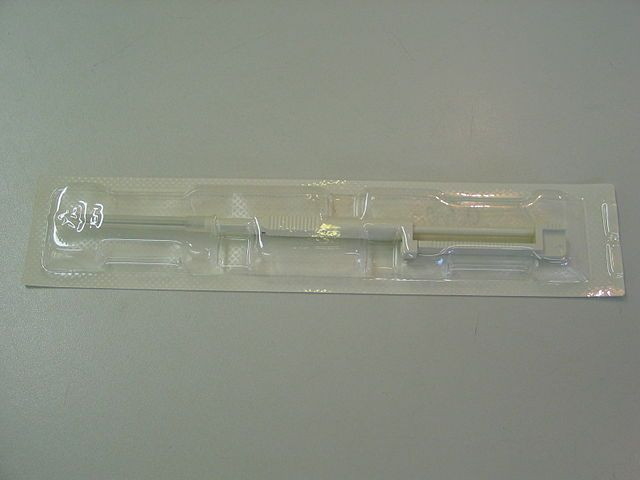Women Fear Infertility Due to Contraceptive Implant

Many women fear they may have reduced their chance of fertility after using the contraceptive implant, Implanon.
The Implanon device is a birth control implant for women, which is a flexible plastic rod no bigger than the size of a matchstick. It is placed under the skin of a woman's upper arm, where it releases a dose of progestational hormone to thicken a woman's cervical mucus. It also thins the lining of the uterus. Overall it prevents ovulation.
In the United Kingdom several women use this particular implant in order to prevent pregnancy, however it has been reported the device can go missing in a woman's body. If the implant goes missing from the inserted site it will not pose a health threat, but it can prevent fertility. Until the implant is located or the hormones expire, women will not be able to conceive.
According to the Medicines and Healthcare Regulatory Agency, a government agency responsible for safeguarding medicines and medical devices for consumers, there were five reported cases of infertility where the Implanon device could not be found for removal.
The New Jersey based manufacturer of Implanon stated in its Food and Drug Administration patient labeling:
"Removal of the implant may be very difficult or impossible because the implant is not where it should be. Special procedures, including surgery in the hospital, may be needed to remove the implant. If the implant is not removed, then the effects of IMPLANON will continue for a longer period of time."
Alan Penzias, director of the fellowship program in reproductive endocrinology and infertility at Boston IVF told ABC "The "worst-case" scenario would require a slightly more involved procedure to remove the device if it embeds itself more deeply than planned."
According to Dr. Lauren Streicher, a gynecologist at Northwestern Memorial Hospital in Chicago, women should not fear permanent infertility. If you fear your implant may not be in its inserted site contact your health care provider.
Published by Medicaldaily.com



























